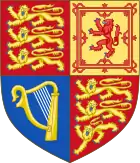Departments of the Government of the United Kingdom
The departments of the Government of the United Kingdom are the principal units through which it exercises executive authority. A department is composed of employed officials, known as civil servants, and is politically accountable through a minister. Most major departments are headed by a secretary of state, who sits in the cabinet, and typically supported by a team of junior ministers.
| This article is part of a series on |
| Politics of the United Kingdom |
|---|
.svg.png.webp) |
|
|
There are also a number of non-ministerial departments. These are headed by senior civil servants, but are linked to a ministerial department through whose ministers they are accountable to Parliament. Departments serve to implement the policies of Her Majesty's Government, regardless of the government's political composition.[1] As a consequence, officials within government departments are generally required to adhere to varying levels of political impartiality and neutrality.
Types
There are two types of government departments.
Ministerial departments are led politically by a government minister, normally a member of the cabinet, and cover matters that require direct political oversight. For most departments, the government minister in question is known as a secretary of state. He or she is generally supported by a team of junior ministers. The administrative management of a department is led by a senior civil servant, known as a permanent secretary. Subordinate to these ministerial departments are executive agencies. An executive agency has a degree of autonomy to perform an operational function and report to one or more specific government departments, which will set the funding and strategic policy for the agency. At "arm's length" from a parent or sponsor department there can be several non-departmental public bodies (NDPBs), known colloquially as quasi-autonomous non-governmental organisations (Quangos).
Non-ministerial departments generally cover matters for which direct political oversight is judged unnecessary or inappropriate. They are headed by senior civil servants. Some fulfil a regulatory or inspection function, and their status is therefore intended to protect them from political interference. Some are headed by Permanent Secretaries or Second Permanent Secretaries.
List
Ministerial departments
Note
- This is the date of the establishment of the department; the position of treasurer (now the Lords Commissioners of the Treasury) is attested to have existed from 1066.[2][3][4][5]
Non-ministerial departments
- Charity Commission for England and Wales
- Competition and Markets Authority
- Crown Prosecution Service
- Food Standards Agency
- Forestry Commission
- Government Actuary's Department
- Government Legal Department
- Land Registry
- Revenue and Customs
- National Crime Agency
- National Savings and Investments
- Ofsted
- Office of Gas and Electricity Markets
- Ofqual
- Office of Rail and Road
- Serious Fraud Office
- Supreme Court
- National Archives
- UK Statistics Authority
- Ofwat
List of executive agencies reporting to each department of the British government
References
- "How government works". gov.uk. British Government. Retrieved 12 January 2016.
- C. Warren Hollister - The Origins of the English Treasury The English Historical Review Vol. 93, No. 367 (Apr., 1978) Retrieved 2012-06-25
- Open Domesday Retrieved 2012-06-25
- HM Treasury:History
- D C Douglas - William the Conqueror: The Norman Impact Upon England University of California Press, 1 May 1967 ISBN 0520003500 Retrieved 2012-06-25



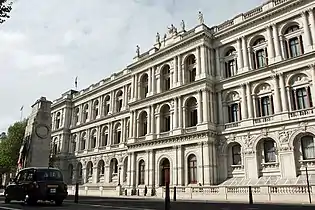
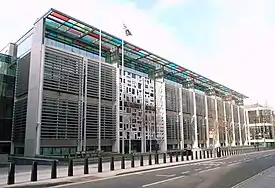
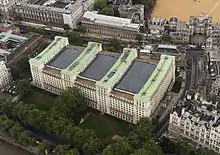


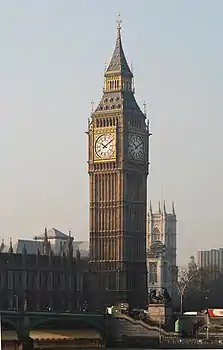
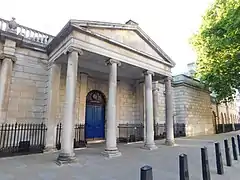
.jpg.webp)
